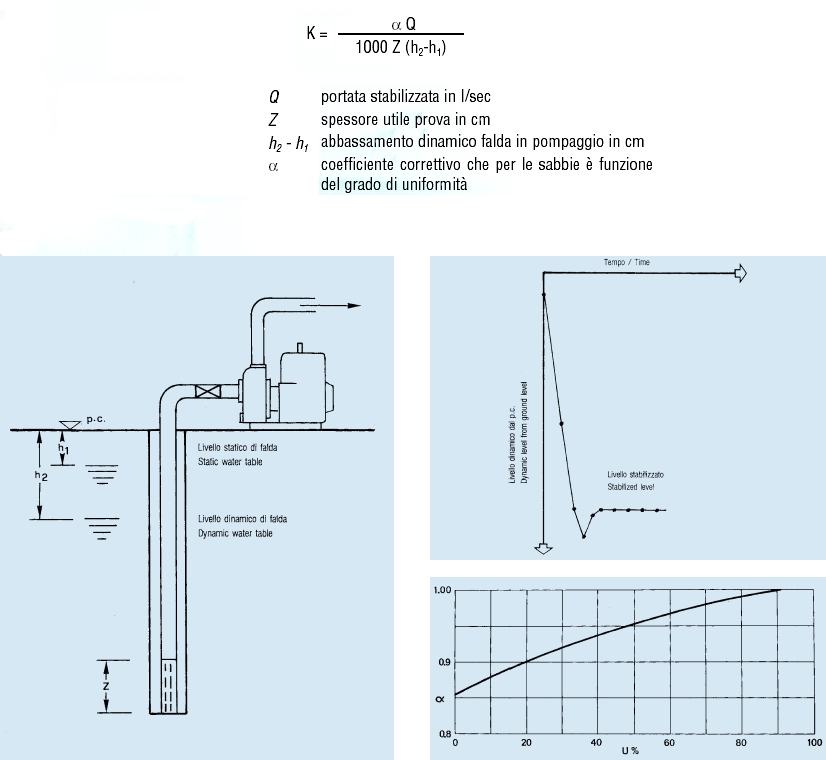
Technical tests in Groundwater
Based on experience, the following sequence of tests is considered essential to have sufficient possibilities to identify anomalies in the hydraulic flow:
– determination of the significant permeability coefficients of the various layers, both vertical and horizontal, in a real context as broad as possible;
– the permeability coefficients must be detected with pumping tests since, if detected on samples or within boreholes, they are rarely representative of the entire affected area;
– control, by means of piezometers, of the hydraulic pressures of the layers characterized by different permeability and granulometry;
– execution of in situ pumping tests with piezometric checks, flow rate measurements and relief of the piezometric, possibly in a transient regime.
The most significant K determination system, in the groundwater, consists in doing pumping tests from a well by measuring the lowering of the groundwater in the piezometers arranged around it until the level of the water table is stabilized. The coefficient K is found by applying the relation of Dupuit:

The determination of the permeability coefficient in the laboratory (undisturbed soil samples) or in situ (complete pumping controls through wells and piezometers) generally requires very high costs in relation to the average use of wellpoint systems. A technique has been developed for the calculation of permeability which can give reliable results, to achieve the purpose without resorting to probes and the installation of observation piezometers. It consists in the insertion of a special filter under water pressure at the depth that is considered appropriate for the type of survey in progress and with a special pump (self-priming), an extraction is carried out at a constant level and flow rate. The coefficient K is obtained from the application of the relationship:


